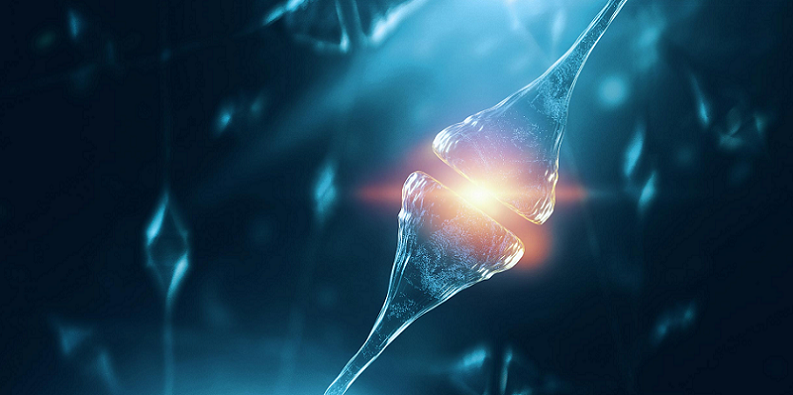
Every drop matters, not just for quenching thirst, but also for our brain’s ability to adapt, learn, and grow. Neuroplasticity, the brain’s remarkable capacity to reorganize itself by forming new neural connections throughout life, is crucial for cognitive function, learning, memory, and overall brain health. But did you know that the simple act of staying hydrated plays a pivotal role in supporting this intricate process?
Contents
Introduction to Hydration and Neuroplasticity
Water, an essential element for life, flows through our bodies, powering myriad processes that keep us alive and thriving. Yet beyond its physiological benefits, water holds a significant yet often overlooked role in the realm of cognition and brain function. At the intersection of hydration and brain health lies the concept of neuroplasticity — a dynamic feature of our neural framework that shapes our ability to think, learn, and remember.
Overview of Neuroplasticity
Neuroplasticity, often referred to as brain plasticity or neural plasticity, is the ability of the brain to reorganize itself both structurally and functionally throughout an individual’s lifespan. This fascinating phenomenon allows neurons, or nerve cells, in the brain to adjust their activities in response to new situations, changes in their environment, or even injuries. Whether you’re picking up a new skill, recovering from a traumatic event, or simply adapting to the ever-evolving world around you, neuroplasticity plays a starring role.
Definition of Neuroplasticity
At its core, neuroplasticity refers to the adaptability of neural circuits. As we experience new things, our brain forms new connections between neurons or strengthens existing ones. Conversely, connections may weaken or deteriorate if they’re no longer needed, often adhering to the principle “use it or lose it.”
Neuroplasticity Importance in Cognitive Function
Beyond its basic definition, the implications of neuroplasticity for cognitive health are profound. It underpins our capacity for learning and memory, facilitates recovery from brain injuries, and can even be harnessed therapeutically in conditions like stroke or neurodegenerative diseases. As researchers continue to delve into the intricacies of the brain, the role of neuroplasticity in maintaining cognitive vitality throughout life becomes increasingly evident [1].
Role of Hydration in General Health
Hydration is more than just quenching one’s thirst. Water makes up about 60% of the adult human body and is essential for nearly every bodily function, from maintaining temperature to cushioning joints. Yet, beyond these often-cited roles, its influence permeates deeper, extending its reach to the very nerve cells that orchestrate our thoughts and actions.
Basic Functions of Water in the Body
Water is a universal solvent, a transporter of nutrients, a temperature regulator, and a detoxifying agent. Our cells bathe in it, our organs rely on it, and our systems can’t function optimally without it. Dehydration, or the state of not having enough water to meet the body’s needs, can disrupt these functions, leading to both short-term and long-term health concerns [2].
The Importance of Adequate Water Intake
While it’s evident that water is indispensable for physical health, its significance doesn’t stop there. A well-hydrated body is the foundation for a well-functioning mind. Cognitive abilities like focus, attention, and even mood can be influenced by hydration levels. In the unfolding sections, we’ll delve deeper into how this simple molecule—H2O—plays a pivotal role in shaping the brain’s capacity for neuroplasticity.

The Neurological Impact of Dehydration
Water’s influence on the body is undeniable, but its reach extends beyond our physical well-being, playing an instrumental role in neurological health. When the balance is disrupted, and the body starts losing more water than it’s taking in, the effects of dehydration become evident, not just physically but also mentally.
Dehydration’s Immediate Effects on the Brain
The brain is acutely sensitive to even minor shifts in water balance. A mere 2% decrease in body water can trigger a range of cognitive and neurological symptoms, signaling the importance of maintaining optimal hydration for mental agility and clarity.
Cognitive Slowness
As dehydration sets in, you might notice a drop in your alertness and a slowdown in cognitive processing. Simple tasks might seem more challenging, or you might take longer to comprehend complex information. This isn’t just a perception; research has shown that dehydration can impact our brain’s processing speed and our ability to pay attention [3].
Difficulty in Concentration
Alongside cognitive slowness, concentration and focus can wane with decreasing hydration levels. The sense of being “scatterbrained” or easily distracted is not uncommon. Whether it’s missing key details in a meeting or finding it challenging to stay engaged in a conversation, the mental fog induced by dehydration is tangible.
Long-Term Neurological Effects of Dehydration
While the immediate effects of dehydration can be quickly remedied with proper fluid intake, consistently neglecting hydration needs can have more insidious, long-term implications for the brain.
Potential Impact on Neural Connections
Chronic dehydration might interfere with the brain’s ability to form and maintain neural connections, which are crucial for learning and memory. Over time, this could potentially hinder neuroplasticity, though more research is needed to fully understand the depth of this relationship.
Stress and Inflammation
Dehydration can act as a stressor to the body, triggering the release of stress hormones like cortisol. Prolonged elevations in cortisol can have detrimental effects on the brain, including reduced neurogenesis (the formation of new neurons). Additionally, dehydration can induce a state of low-grade inflammation, which, over time, can contribute to neural damage and potentially accelerate cognitive decline.

How Hydration Supports Neuroplasticity
While the detriments of dehydration on the brain are substantial, the positive angle is equally compelling. Proper hydration not only counteracts the adverse effects but actively promotes brain health, particularly when it comes to neuroplasticity. The nourishing flow of water through our system plays a profound role in creating an optimal environment for the brain’s adaptability.
Water’s Facilitation of Nutrient Transport
Water is the medium through which nutrients travel, supplying every corner of our body, including the brain, with the essential elements it needs to function and adapt [4].
Role in Supporting Neural Health
Just as plants require water to transport nutrients from their roots to their leaves, our brain cells need water to receive the nutrients vital for their health and function. Essential minerals, vitamins, and glucose journey via the bloodstream, dissolved in water, to nourish neurons. This efficient transport system ensures that the brain receives the sustenance it needs for repair, growth, and the formation of neural connections.
Promoting Efficient Energy Usage in Neurons
The brain is an energy-intensive organ, accounting for about 20% of the body’s total energy consumption. Glucose, its primary energy source, travels through the bloodstream, carried by water. Proper hydration ensures that glucose is efficiently delivered to neurons, empowering them to maintain optimal function, foster connections, and adapt to new learning and experiences.
Hydration’s Detoxification and Waste Removal
The brain’s metabolic activities produce waste, some of which can be harmful if allowed to accumulate. Here’s where hydration steps in as a critical component of the brain’s cleansing mechanism.
Prevention of Toxic Build-Up
One of the remarkable features of our brain is the glymphatic system, a waste clearance pathway. During sleep, cerebrospinal fluid, which is primarily made up of water, washes over the brain, flushing away metabolic waste and potential neurotoxins. Adequate hydration is vital for this system’s efficiency, ensuring harmful substances are removed before they can impair neural function and plasticity.
Ensuring Smooth Neuronal Communication
Just as waste can exit through these fluid channels, essential signaling molecules and neurotransmitters travel through them, facilitating communication between neurons. A hydrated brain ensures smooth passage and effective communication, pivotal for neuroplastic processes [5].
Hydration’s Maintenance of Blood Volume and Brain Oxygenation
Oxygen, vital for neuronal energy production and function, is carried to the brain by blood, whose volume and flow are directly influenced by hydration.
Supporting Neuronal Energy Demands
Neurons rely on oxygen to produce ATP, the primary energy currency of cells. By maintaining blood volume through proper hydration, we ensure a steady flow of oxygen-rich blood to the brain, enabling neurons to meet their energy demands and actively participate in neuroplastic processes.
Importance in Learning and Memory
Numerous studies have highlighted the link between brain oxygenation and cognitive functions like learning and memory. Ensuring optimal hydration can indirectly support these processes by promoting efficient oxygen transport to the brain, further highlighting the hydration-neuroplasticity connection.
References
[1] What does water do for the brain?
[2] The Effects of Hydration Status on Cognitive Performances
[3] Water intake, hydration status and 2-year changes in cognitive performance
[4] Staying Hydrated Boosts Brain Power
[5] Water helps kids focus, improves ability to multitask
